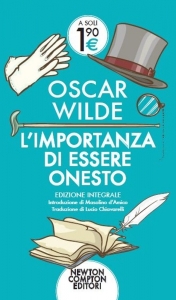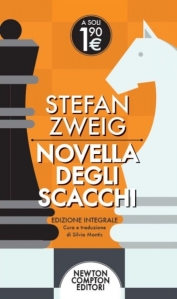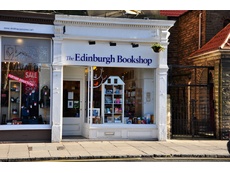 After the Fire, a Still Small Voice, by Evie Wyld (Vintage). There are many covers to the book, but I think this is my favourite, especially for the way it ties in with my favourite book of 2013. This is Wyld’s first book, and it has made me inconceivably content because it proves that All The Birds, Singing was not a one-off, and Wyld will be writing many more excellent books in the years to come. ‘Prove it,’ you say, and so I shall.
After the Fire, a Still Small Voice, by Evie Wyld (Vintage). There are many covers to the book, but I think this is my favourite, especially for the way it ties in with my favourite book of 2013. This is Wyld’s first book, and it has made me inconceivably content because it proves that All The Birds, Singing was not a one-off, and Wyld will be writing many more excellent books in the years to come. ‘Prove it,’ you say, and so I shall.
‘At least he’s getting out of the house, chicken,’ his mother said to him as they watched his father lope down the street, away from them, his towelled bread held tightly to his body. He would go out until lunchtime and then come back, so that his mother could run her fingers through his hair, straighten his collar and sit him down for a sandwich or a piece of cake. After lunch he would go out again, mumbling something about looking for work, but the work was never found, and with Leon running the place they had no need of extra money anyway. When his father returned he’d be wobbly and thick-mouthed, looking at his tea as though it were dangerous, picking and sorting through the food rather than eating it. Then the routine became worn and thin in the middle so he returned later and later for lunch, glassy-eyed and drunk, and then not at all, only for supper, when he would be anxiously and darkly stared at by his wife, and he’d look at the floor, his eyes as wide as they could open, his breath hard in the back of his throat. Those nights he had to be herded up to bed by Leon’s mother and she said quietly, ‘hp, hup,’ as they climbed the stairs. Leon watched out of the corner of his eye as his mother touched his father’s face, only to have him flinch away; then her sad look made him pat her hand, but quickly like she would burn him.
This is a long extract, but I wanted to reproduce it in full because it exemplifies one of the crowning features of this novel, and that is the treatment of PTSD in the novel. The novel covers the Korean War and the Vietnam war, which many Australians were dragged into through aggressive recruitment and conscription. We are shown how a community attempts to reabsorb those damaged by the conflict, to begin to heal, only to be confronted with yet another war, and yet another generation of men coming back without a sense of place. This part of the novel is concentrated on Leon, the son of Jewish refugees, whose father is a wonderfully skilled baker. Descriptions of making sugarwork into wedding figurines are worth savouring.
The second story thread running through the novel is that of Frank, a man broken by childhood trauma, who can find solace (or something close to it) in solitude. He escapes to his dead grandparent’s house, surrounded by sugarcane and scrub, and attempts, slowly, to rebuild his life. Naturally, this proves difficult. I really don’t want to give away anything, because this novel deserves to be read fresh, as a debut from an hitherto unknown author.
So all I will say is this: both strains of this story are utterly necessary and utterly brilliant.




 Right, cost. I have talked about this in passing before, but this gives me the opportunity to have a good rant. For many of the cannonical classics there is no living author, and often no rights either. Thus, if I wanted to, I could typeset, print, bind and sell a copy of Great Expectations tomorrow and wouldn’t have to pay anyone (If I did all the production). So how is it that companies (Cambridge Modern Classics and Penguin Classics being the big players here) can rationalise a £9.99 price tag (going all the way up to around £17 in some cases) for a book where there is no advance or royalty needing covered?
Right, cost. I have talked about this in passing before, but this gives me the opportunity to have a good rant. For many of the cannonical classics there is no living author, and often no rights either. Thus, if I wanted to, I could typeset, print, bind and sell a copy of Great Expectations tomorrow and wouldn’t have to pay anyone (If I did all the production). So how is it that companies (Cambridge Modern Classics and Penguin Classics being the big players here) can rationalise a £9.99 price tag (going all the way up to around £17 in some cases) for a book where there is no advance or royalty needing covered?




